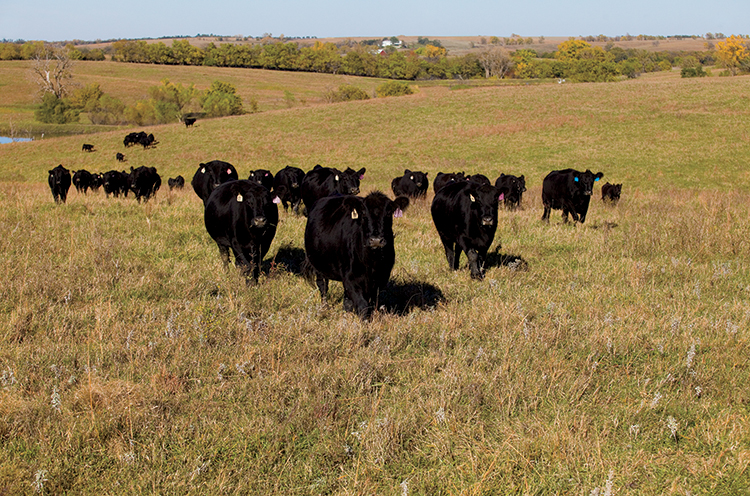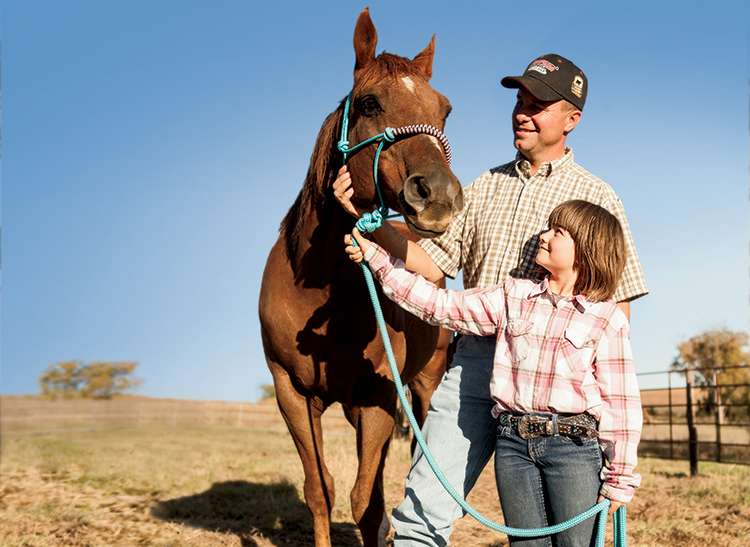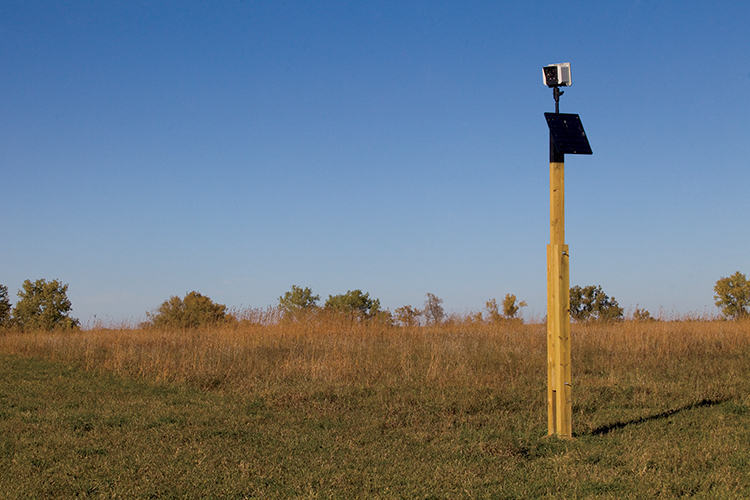Home > Nebraska > Nebraska Environment > Nebraska Livestock Producers are Loyal to the Land
Nebraska Livestock Producers are Loyal to the Land

Rod Christen enjoys what he sees from his front porch. “My favorite view is standing there looking in at my family,” he says. “A close second is standing on the front porch looking out at the land.”
For this family man, the view inside includes wife, Amy, daughters, Dana, 13, and Leah, 9, and son, Evan, 6. For this rancher and Leopold Conservation Award winner, the view outside includes more than 2,000 acres of grasslands, which he and his family, including sister, Kay, work hard to preserve.
With 250 cows and calves, their operation near Steinauer, located in the southeast corner of the state, focuses on sustainable land management practices that create the best environment for raising cattle. Such initiatives include: developing water sources, implementing grazing management changes, and conducting brush-clearing projects.
Christen explains all of these practices pay dividends for the rancher, the general public and the environment. By adding water pipelines and tanks and cross-fencing to the property, the cattle don’t overgraze. That cuts down on soil erosion and improves grass production. A better-fed cow means higher quality beef for consumers, and a happy consumer means more business for livestock producers. All these factors combined, Christen contends, is what is meant by the word “sustainability.”

Community Connections
Nebraska farms are often family operations handed down from generation to generation, and the farmers are tied to their communities through churches, schools and local businesses.
“As someone who has been involved in raising livestock all my life, I realize just how important it is to maintain an operation that will work in harmony with the environment and the community,” says Greg Ibach, director of the Nebraska Department of Agriculture. “Cattle, swine, and poultry farms and ranches are very interconnected socially, economically and culturally with the towns and cities around them. It is vital for both to understand and respect one another in order to protect long-term sustainability for each.”
Ibach says it’s important to understand the main principles of sustainable agriculture in order to realize the impact it has on Nebraska.
“When you put in perspective the number of people and families that are reliant on the livestock and crop industries in Nebraska, both from an economic and cultural perspective, you quickly have a deep understanding and appreciation of the importance of long-term sustainability,” Ibach says. “That sustainability can only be nurtured by creating a harmonious partnership between producers, consumers and the environment.”

Building Partnerships
Implementing good land management practices requires a commitment to infrastructure improvements and the time, money and hard work to sustain them. Fortunately, there are many partners dedicated to such sustainability efforts, and several assisted with the water projects on the Christen farm.
The Sand County Foundation is another committed partner. The organization works with private landowners across Nebraska and the nation to encourage practices that improve the environment. The Leopold Conservation Award Program, which is just one of the foundation’s initiatives, recognizes achievement in voluntary conservation.
“In Nebraska, 93 percent of the land is under private ownership,” says Craig Utter, the Leopold Award coordinator for Nebraska.
It’s not necessarily the land management practices themselves that set award winners apart, Utter says. It’s also a commitment to ethics and principles that focus on what’s best for the land over time.
“Whether the operation has been in one family for generations or newly acquired, the land, its ecosystem and the wildlife inherit the decisions made by the previous stewards,” Utter says.
Christen agrees. “I love to fish and to hunt, and my kids enjoy fishing and riding horses,” he says. “We work hard caring for the land, so we can also enjoy the benefits the land and improved habitat provide. That, to me, brings sustainability full circle.”



